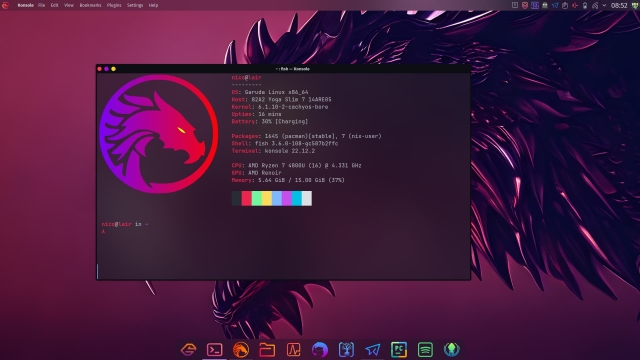
For years, gaming on Linux has been synonymous with challenges and limitations, with many gamers opting for Windows or macOS due to better compatibility and support for popular titles. However, the landscape is rapidly changing, and the future of gaming on Linux is looking brighter than ever. Thanks to concerted efforts from developers, community initiatives, and advancements in technology, gaming on Linux is poised to become significantly more convenient, ushering in a new era of accessibility and choice for gamers worldwide.
- Growing Native Support: Historically, one of the main barriers to gaming on Linux has been the lack of native support for popular titles. However, the tide is turning, with an increasing number of game developers embracing Linux as a viable platform. Major game engines like Unity and Unreal Engine now offer robust support for Linux, making it easier for developers to port their games to the platform. Additionally, initiatives such as Valve’s Proton and Steam Play have made it possible to run many Windows-exclusive games on Linux with minimal hassle, further expanding the available library of titles.
- Proton and Steam Play: Proton, a compatibility layer developed by Valve in collaboration with CodeWeavers, enables Linux users to play Windows games on their systems seamlessly. Leveraging the power of Wine, Vulkan, and other open-source technologies, Proton translates Windows APIs into their Linux equivalents, allowing for smooth and reliable gaming experiences. Combined with Steam Play, which integrates Proton directly into the Steam client, Linux gamers now have access to a vast catalog of games previously unavailable on the platform. As Proton continues to evolve and improve, the future of gaming on Linux looks increasingly promising.
- Leveraging Cloud Gaming: Cloud gaming services have gained popularity in recent years, offering gamers the ability to stream games directly to their devices over the internet. While traditionally associated with Windows and other mainstream platforms, cloud gaming services are beginning to embrace Linux compatibility. Platforms like Google Stadia and NVIDIA GeForce Now support Linux clients, allowing users to access high-quality gaming experiences without the need for powerful local hardware. As cloud gaming technology matures, Linux users can expect even greater convenience and accessibility in the gaming sphere.
- Community-driven Initiatives: The Linux gaming community is a vibrant and passionate ecosystem, constantly working to improve the gaming experience on the platform. Projects such as Lutris, a gaming platform that simplifies the installation and management of games on Linux, provide users with intuitive tools for accessing their favorite titles. Similarly, the Wine project continues to make strides in compatibility and performance, enabling Linux users to run a wide range of Windows software, including games, with increasing reliability.
- Advancements in Graphics Drivers: Graphics drivers play a crucial role in gaming performance, and Linux has made significant strides in this area in recent years. Both AMD and NVIDIA have been actively improving their Linux drivers, offering better support for modern graphics hardware and optimizing performance for gaming workloads. The advent of technologies like Vulkan, a cross-platform graphics API with robust support on Linux, has further accelerated the development of high-performance gaming experiences on the platform.
In conclusion, gaming on Linux is on the cusp of a revolution, with convenience and accessibility reaching unprecedented levels. As native support for Linux grows, compatibility layers like Proton continue to improve, and cloud gaming becomes more prevalent, Linux users can look forward to a gaming experience that rivals that of traditional platforms. With the combined efforts of developers, community members, and technology innovators, gaming on Linux is poised to break free from its previous limitations and emerge as a compelling choice for gamers of all stripes.